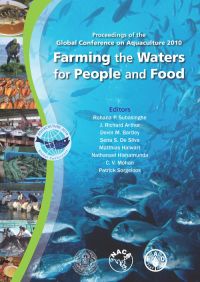JICA / NACA / DOF International Symposium on Small-scale Freshwater Aquaculture Extension
10 February 2014 | 67983 views | Cambodia, Inland aquaculture, Lao PDR, Thailand
World population is projected to increase drastically in the coming decades which might bring about shortage of food. Freshwater fish are considered to be one of the most promising commodities that can contribute to increased food production in a sustainable manner. Common in the Asia-Pacific region, freshwater aquaculture provides diverse benefits to rural farmers including income generation, improved nutrition and sustainable livelihoods through integrated farming system.
The main objective of this symposium was to provide a venue for information sharing on extension of small-scale aquaculture, specifically targeted to those individuals and relevant organisations involved in various aquaculture development projects. The symposium also assessed and presented the effectiveness of “farmer-to-farmer extension” approaches in the implementation of relevant aquaculture development projects in the region.
The symposium was organised by the Japan International Cooperation Agency (JICA), NACA and the Thai Department of Fisheries for stakeholders involved in the JICA-assisted projects in Cambodia, Lao PDR, Myanmar, Benin and Madagascar. The symposium was also attended by representatives from other countries in Asia and Africa including Cote d’ Ivoire, Indonesia, Malaysia, Nepal, Philippines and Zambia.
Creative Commons Attribution.
